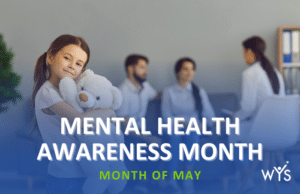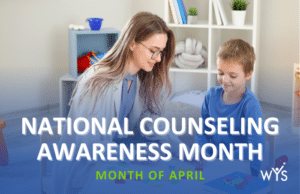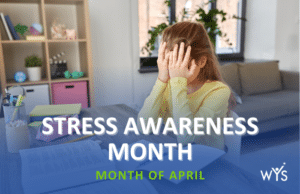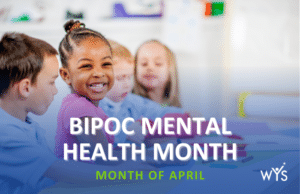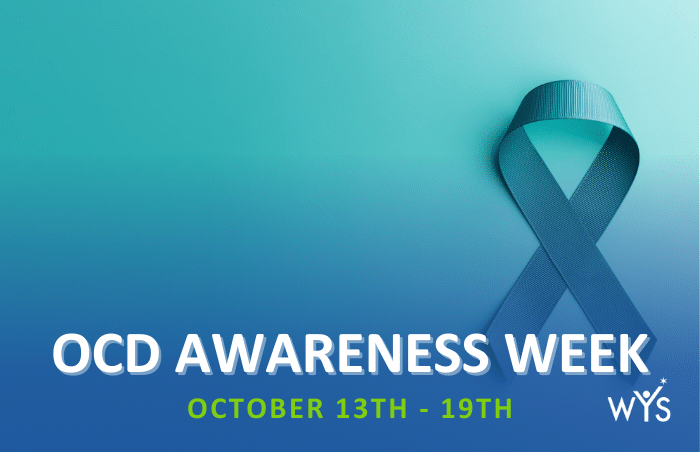
OCD Awareness Week kicks off on October 13th and continues on until October 19th. This week allows us to recognize and to celebrate those that live with OCD and how it affects their lives daily. OCD Awareness Week, launched in 2009 by the International OCD Foundation, aims to increase understanding and awareness of OCD and its impact on individuals. Our goal is to raise awareness surrounding OCD in youth and provide actionable support and resources.
Understanding OCD
The International OCD Foundation describes OCD as follows: Obsessive Compulsive Disorder (OCD) is a mental health condition that affects individuals of all ages and backgrounds. It occurs when a person becomes trapped in a cycle of obsessions and compulsions. Obsessions are intrusive, unwanted thoughts, images, or urges that cause intense distress. Compulsions are repetitive behaviors or actions a person engages in to alleviate or reduce the anxiety caused by these obsessions.
OCD in children can cause an impact on daily functioning, school performance, and social interactions. It may also influence other psychological effects including; anxiety, depression, and self-esteem issues. According to the National Institute of Mental Health, approximately 1 in 100 children and adolescents are affected by OCD.
Challenges OCD Presents in Youth
A child with OCD may experience an impact on their daily life such as: effects on academic performance and attendance, social difficulties like forming and maintaining friendships, and family dynamics like stress and understanding within the family unit. They may also struggle with emotional and psychological challenges including persistent anxiety and fear and an impact on self-image and self-esteem.
Adverse Childhood Experiences (ACEs) can also play a role in how severe a child’s symptoms of OCD may be. ACEs have been found to exacerbate OCD symptoms in children.
Signs and Symptoms of OCD in Children
Symptoms of OCD in children may present as obsessions and compulsions. Below are some examples of each:
- Examples of obsessions: intrusive thoughts, fears of contamination or harm
- Examples of compulsions: excessive hand-washing, checking rituals
Children can also showcase behavioral and emotional signs such as:
- Changes in behavior: withdrawal, irritability
- Emotional signs: extreme anxiety or distress
Supporting Children with OCD
OCD can significantly impact the lives of young people, presenting unique challenges in daily routines, academics, and social interactions. However, with the right support and strategies, these challenges can be managed effectively. Families and caregivers play a vital role in fostering a supportive environment, helping children with OCD thrive. It’s important to remain hopeful, as there are numerous resources and treatments available to help manage OCD such as:
Utilizing Professional Help and Therapy
- Skill Development: Therapy helps children with OCD learn coping strategies and techniques to manage their obsessive thoughts and compulsive behaviors effectively.
- Emotional Support: It provides a safe space for children to express their feelings and concerns, reducing anxiety and building resilience.
Building a Supportive Home Environment
- Reduces Triggers: A structured routine helps minimize uncertainty and stress, which can lessen the intensity of OCD symptoms and make the condition more manageable.
- Builds Trust and Support: Open communication and understanding create a supportive environment where children feel safe to express their struggles and receive the help they need.
Treatment Options for OCD
- Cognitive Behavioral Therapy (CBT): CBT, particularly Exposure and Response Prevention (ERP), helps children gradually face their fears and reduce compulsive behaviors through structured exercises.
- Medication: Selective Serotonin Reuptake Inhibitors (SSRIs) can be prescribed to help manage OCD symptoms by balancing brain chemicals that affect mood and anxiety.
With ongoing care and encouragement, children with OCD can lead fulfilling lives, and support is always within reach. Click here for our Access Coordination/One Door Any Door to find the best mental health services for your specific needs.
If your child or a young loved one is struggling with a mental health concern, we encourage you to reach out to a mental health professional or to contact an Access Coordinator at Western Youth Services by sending an email to gethelp@westernyouthservices.org or by calling us toll-free at 888-312-0406.
Orange County, State and National resources can be found on our site here: https://www.westernyouthservices.org/resources/.



